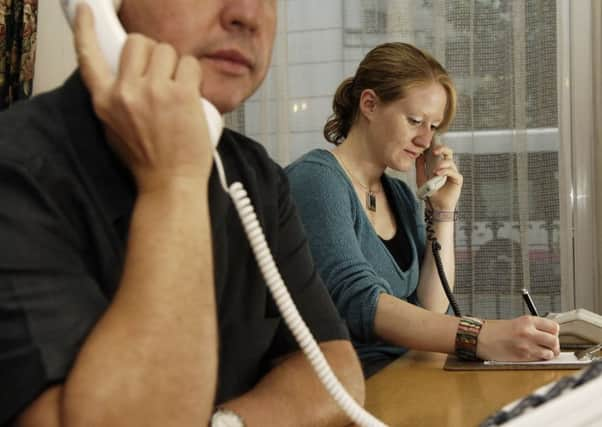Jen Gracie: It's not just about suicide '“ how the Samaritans help with everyday crisis


Whilst we are the leading suicide prevention charity in the UK and Ireland, we know that only one in five of the people who call us says that they’re feeling suicidal. And those conversations can be just as life-saving.
I was speaking about this recently to one of our volunteers, who believes that’s because we often act as a “handrail – for those who just need to reach out briefly, just to steady themselves. To get through.”
Advertisement
Hide AdAdvertisement
Hide AdI had heard something like this before from Iain Lee, a comedian and radio presenter who has used our service. He described calling Samaritans as like letting the steam out of a pressure cooker. That’s because for Iain, like so many of our callers, that brief connection was enough to let him find a way through.


Unfortunately, however, the toll of suicide in Scotland is still huge. Recent figures from National Records of Scotland show 728 families in Scotland lost a loved one to suicide last year and it is generally estimated that for each person lost there will have been at least ten others attempting suicide.
The scale of this demands real action. We can – and should – be addressing the issues that lead to suicide risk rather than waiting until people reach crisis point. While suicide is a deeply personal issue, measures at a national level really can have an impact. When Scotland started making concerted national efforts to reduce and prevent suicide in 2002, we had one of the highest suicide rates in Western Europe. Yet over the first ten years of our recent suicide prevention strategies, we saw a significant and sustained drop in that rate.
This shows what a real commitment to suicide prevention can do – and we need to renew that commitment now. With work underway on the Scottish Government’s new suicide prevention action plan, we’re calling for a greater cross-government approach to suicide prevention. That is vital if we are serious about tackling this, because suicide is not simply a mental health issue. Many thousands of people living with mental ill health are not affected by suicidal thoughts and not all people who take their own life have a mental illness.
As our recent Dying from Inequality report shows, it is an issue of housing, welfare, employment and so much more. The evidence is clear – suicide is too complex to be addressed by mental health or clinical policies alone. We need to be bolder to address the toll that suicide is taking. We need to commit to addressing suicide risk in the range of areas where we know that effort could make a difference. From adequate crisis care to welfare, from emotional literacy in our schools to tackling alcohol misuse, there are steps that we have the power to take that could save lives. We need to be brave enough to take them.


I’m proud to say that Samaritans will always reach out; that we’ll always be there to help you steady yourself. But what we want, more than anything, is to reduce the number of people who need that support. Suicide is not inevitable and it certainly shouldn’t be the biggest killer of men under 50 or young people aged 20-34 in the UK. We need to be brave to tackle this – and the scale of the issue demands that we are.
Samaritans is available round the clock, every single day of the year. We provide a safe place for anyone struggling to cope, whoever they are, however they feel, whatever life has done to them. Please call 116 123 (this number is free to call and won’t show up on your phone bill), email [email protected], or visit www.samaritans.org/branches to find details of the nearest branch.
Jen Gracie is policy and communications officer, Samaritans Scotland.